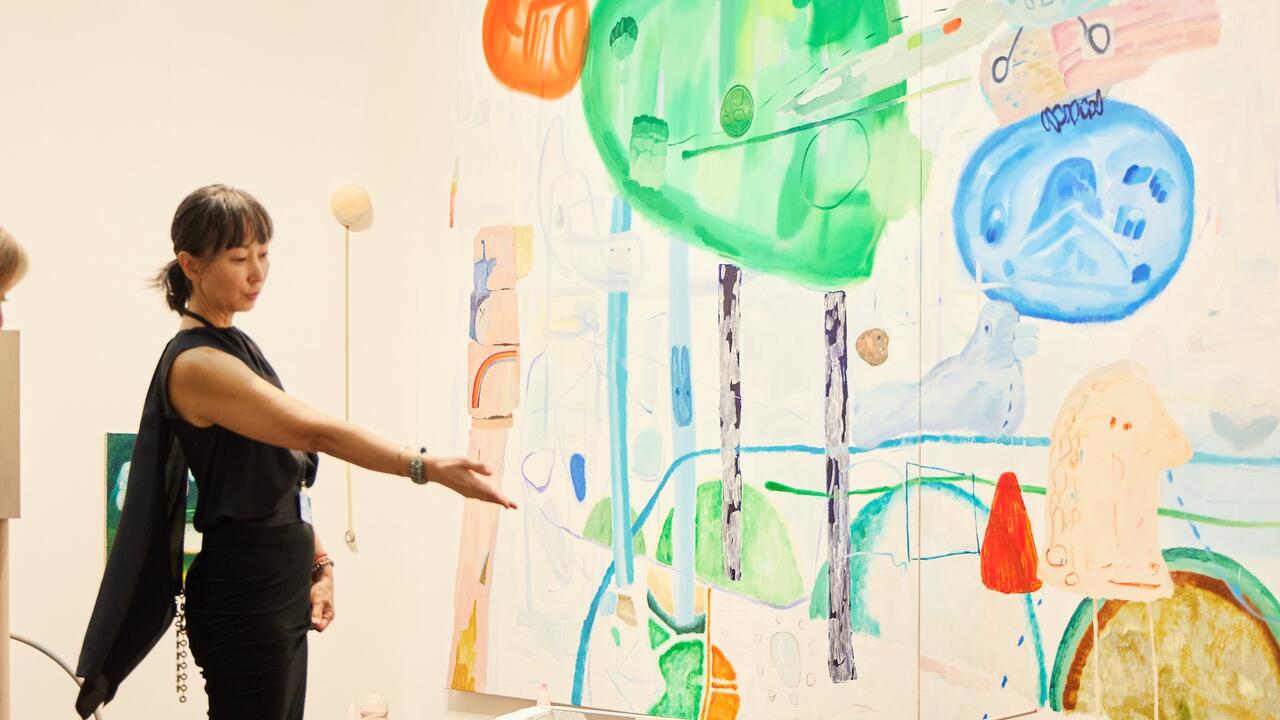Was das Ich von selbst erfährt?
Galerie für Zeitgenössische Kunst
Galerie für Zeitgenössische Kunst

When Siegfried Unseld published the first volumes of the ‘edition suhrkamp’ series in 1963, they struck a chord among German university students. With their monochrome jackets designed by Willy Fleckhaus, the slim volumes armed the student movement of the late 60s with discursive tools: texts on social criticism, psychoanalysis, postcolonial theory, alternative education, university politics and philosophy of science. Ever since, these books have epitomized that generation’s wide-ranging interests. It seemed natural that – as part of Moira Zoitl’s instal-lation Gerüst/antiautoritär (Framework/ Anti-authoritarian, 2011/13) – they should turn up in an exhibition entitled Was das Ich von selbst erfährt? (What The Ego Learns By Itself?) The show’s title resonates with the values and practices of members of Germany’s ‘extraparliamentary opposition’: ‘encounter groups’, emancipation, identifying and articulating one’s interests and needs – just as ‘edition suhrkamp’ exemplifies a culture of ‘learning by oneself’ (the exhibition’s subtitle) and a probably-unique grassroots enthusiasm for theory.
In Zoitl’s installation, the Suhrkamp books appear as placeholders for the library of her parents who helped run a self-organized kindergarten in the 1970s and who, probably spurred on by books like the Walter Benjamin reader Über Kinder, Jugend und Erziehung (On Children, Youth and Education, Suhrkamp, 1969), looked for new, ‘non-repressive’ approaches to childcare. The artist (born in 1968) leaned these objects from the family library against a model of a homemade climbing frame from a 1970s playgroup. In this way, she posed the though experiment how far her parents’ reading at the time might have influenced the design of playground architecture, asking how theories of ‘independent learning’ were translated into practice. In any case, the climbing frame bore a certain resemblance to Sol LeWitt’s grid cube sculptures crossed with a kind of Ikea hack.
Was das Ich von selbst erfährt? brought together works by seven artists or artist groups in an attempt to focus in on self-determined learning. How does experimentation work? What to do with the knowledge acquired? Does it represent a blueprint? Might the results be transferred to a school context? These questions arose but the art was often too smart to be pinned down. In the early 1970s, for example, John Baldessari had great fun with his video experiment Teaching a Plant the Alphabet (1972): in a display of extreme patience, a small potted plant is shown letters in alphabetical order that are read aloud by a voiceover, as in a laboratory. Behind this blatantly nonsensical experiment that ironically echoes the spirit of the hippie era (talking to plants), a second experiment takes place. At this time, artists like Baldessari were experimenting with a new camera system (the Sony Portapak) that became wide-spread toward the end of the 1960s. What we actually see, then, is the artist himself in the process of learning.
‘No Answers!’ could have been added as a motto to the installation Ohne Titel (Fragen-Projektion) (Untitled, Question Projection, 1981-2002) by Peter Fischli and David Weiss. Using several slide projectors, they cast endless questions into a darkened space: ‘Am I a sponge?’, ‘Should I express myself more clearly?’, ‘Is the freedom of birds overrated?’ A related brand of humour was on show in Karen Winzer’s contribution consisting of various instructions and reports, including ballpoint pen sketches of how to serve plates of eggs, cheese, fish and sausage, Alles Gute zum 65.! – Anleitung zum Arrangement des eigenen Geburtstagsbuffets, (Happy 65th! Instructions For Arranging One’s Own Birthday Buffet, 2014). Against the trend of assigning artists the role of experts (as in popular exhibition themes such as ‘eco-art’ or ‘social art’), Was das Ich von selbst erfährt? privileged knowledge and experiments that are unlikely to be transferable to schools or universities anytime soon. Artists are anti-experts. And for the scintillating range of tasks faced by art, nothing is more beneficial than a joyful science.
Translated by Nicholas Grindell
















